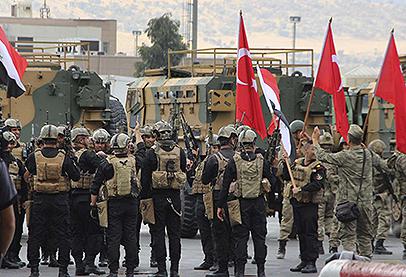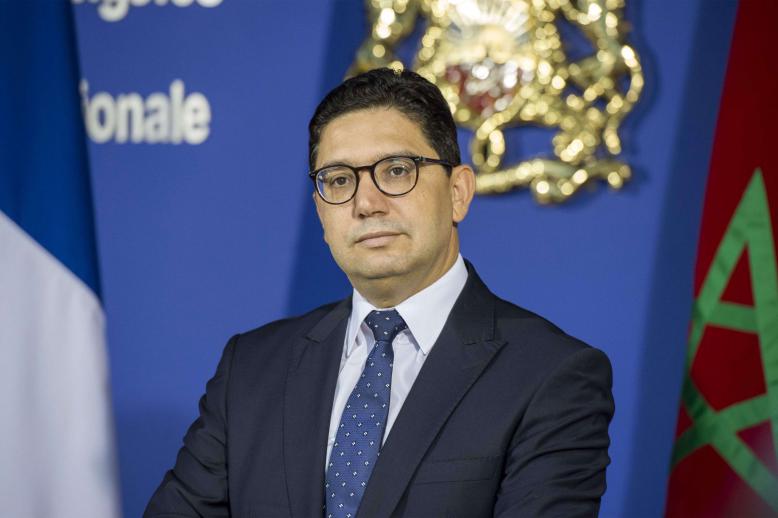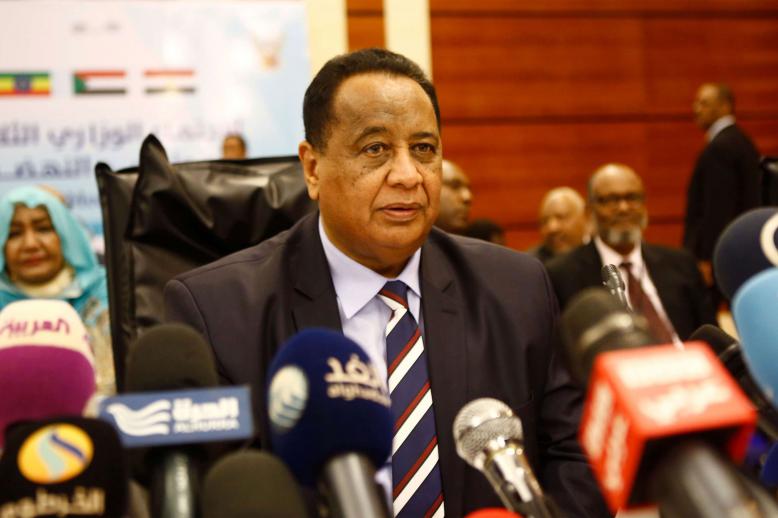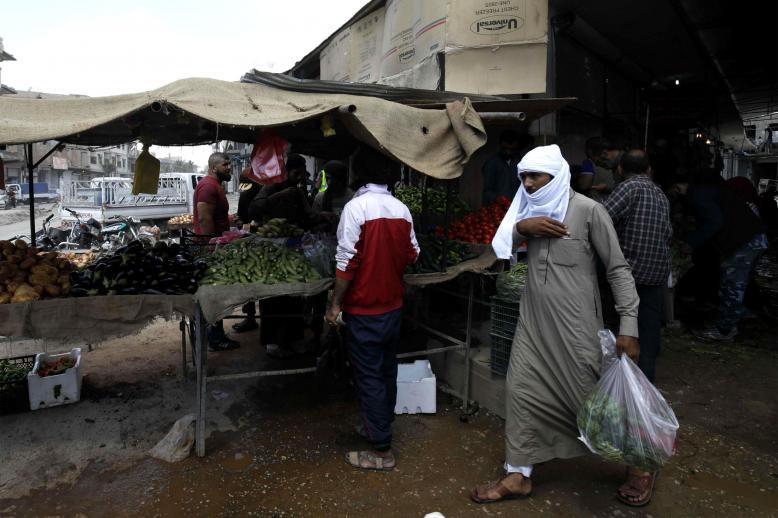Warming Iraqi-Turkish ties could turn up heat on PKK militants

An improvement of relations between Turkey and Iraq is likely to see the two sides take part in joint operations against the Kurdistan Workers’ Party (PKK) in the Qandil Mountains of northern Iraq.
Turkish Foreign Minister Mevlut Cavusoglu, during a visit to Vienna, said the joint Iraqi-Turkish operation could start after the May 12 elections in Iraq. Iraqi authorities have yet to officially comment.
The military cooperation would target any Islamic State (ISIS) militants in northern Iraq.
“We are in close contact with the Iraqi government… regarding both eradicating [ISIS] from the region completely and wiping out PKK,” Turkish Prime Minister Binali Yildirim said.
The PKK is listed as a terrorist organisation by the United States and the European Union, as well as by Turkey. Ankara frequently insists it will treat ISIS and the PKK the same as both are deemed threats to Turkey.
The Kurdish militants have waged an insurgency in Turkey since the 1980s, leading to the death of more than 40,000 people. Turkey frequently launches operations into northern Iraq in pursuit of PKK militants who maintain bases there.
Terror attacks in Turkey paused in 2013 following peace talks between Ankara and the PKK but resumed in 2015. More than 1,200 Turkish security personnel and civilians have been killed in PKK-linked attacks since then, Turkish figures claim. At least 319 people have lost their lives in ISIS attacks in Turkey in the same period.
Ankara has long been urging Baghdad to act against the PKK in Iraq but the call has fallen on deaf ears. If followed through, it would signal a major shift in Iraqi policy towards Turkey.
Plans for a joint offensive follow a Baghdad-Ankara rapprochement stemming from both countries’ strong opposition to a referendum last September in Iraq’s Kurdistan region that resulted in a yes vote for separation from Iraq.
The warming of ties is a far cry from late 2016 when Iraqi authorities branded the Turkish military presence in northern Iraq “an invasion.”
Turkish troops were training Kurdish peshmerga as well as Arab fighters against ISIS in Nineveh province. Turkey had deployed approximately 700 troops at Bashiqa camp. The area was under the control of the Kurdistan Regional Government (KRG), which is dominated by Masoud Barzani’s Kurdistan Democratic Party (KDP).
At the peak of a Turkey-KRG alliance, Turkish troops took part in supporting the peshmerga to liberate Bashiqa from ISIS. Turkey’s ties with the KDP cooled considerably since the KRG referendum.
While accepting support from foreign forces in the fight against ISIS, Iraqi Prime Minister Haider al-Abadi drew the line at Turkey’s participation.
“We do not want war with Turkey and we do not want a confrontation with Turkey but, if a confrontation happens, we are ready for it. We will consider [Turkey] an enemy and we will deal with it as an enemy,” Abadi said in 2016.
During the same period, Hadi al-Amiri, the leader of the Iran-backed Badr Brigade militia, warned that his fighters “will not allow the Turkish forces to violate Iraq’s sovereignty.”
Turkey is engaged in an offensive in Syria’s Afrin to drive out Kurdish militants it considers to be an extension of the PKK. Cavusoglu said Turkey’s offensive into Afrin, which began January 20, could be completed by May.
Turkey warned that its military operation in Syria could expand as far east as Iraq.
“We will rid Manbij of terrorists [in Syria]… and our battles will continue until no terrorist is left until our border with Iraq,” Turkish President Recep Tayyip Erdogan said in January.
Turkey maintains that its fight against the PKK is inseparable from its war on ISIS. Simultaneous terror attacks by both groups in 2015-17 left Turkish security forces overstretched.
Iraq and Turkey expressed fear of ISIS fighters slipping into their territories from Syria but both sides sit on opposing ends when it comes to their position towards the Syrian regime. Iraq views Syrian President Bashar Assad as the legitimate leader of Syria and Turkey is backing rebels who seek to overthrow him.
Iraq and Turkey are unlikely to find common ground there.
This article was originally published in The Arab Weekly.




